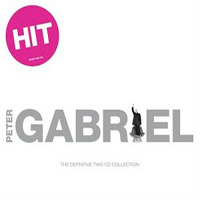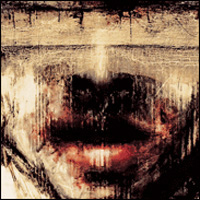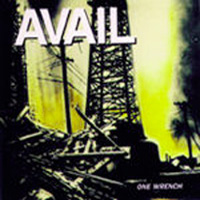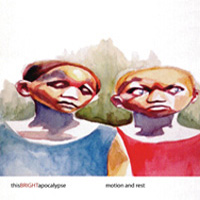 Peter Gabriel
Peter Gabriel
Hit (Geffen)
by Tim Den
It’s been 14 years since the last Peter Gabriel “greatest hits” compilation (that would be ’90’s Shaking the Tree). You bet Hit has a lot of ground to cover. Without neglecting the old faves (“Solsbury Hill” as opener again, hit singles such as “Sledgehammer” and “Big Time,” political diatribes such as “Biko” and “Games Without Frontiers”), Hit nonetheless includes a ton of newer material: Five songs off of his latest album, Up, to selections from his recent film works. Older fans might scoff at the omission of “Red Rain” and “Mercy Street” in exchange for OVO (essentially a soundtrack to a laser show) tracks such as “The Tower That Ate People” and “Father, Son,” but they’d be missing the point: Gabriel’s entire career has been about progression. From studio technology to live shows, the man has never made traditionalism one of his goals. To expect him to repeatedly dust off the old favorites is like expecting Charlie Kaufman to write Being John Malkovich… Again! Not only is it not gonna happen, who the hell would want that? Go buy his old albums – or Shaking the Tree – and quit your yappin’.
Hit flows as well as any new studio album, from sombre pieces like “Don’t Give Up” and “Here Comes the Flood” to full-out rockers like “Steam” and “Burn You Up, Burn You Down” (the latter a previously-unreleased gem) without compromising Gabriel’s meshing of electronica, world music, and pop. Practically the grandaddy of the style being hocked by Björk, Dido, Sarah McLachlan, and the like, it’s even more astonishing that he’s able to best them all with songs like “Signal to Noise” (the highlight of Up) in his elderly days. Grandiose, majestic, eerily sentimental, redemptively depressing, given a spit-shine by modernity’s best-sounding production. When you think about it, it’s almost too fitting that he scores so many films. Gabriel’s music embodies the open-skies, ending-credits release that resonates through you as you leave the theater, not to mention the drama that gives any film’s pivital points that extra push. Hit concludes with “Cloudless” from Long Walk Home (the soundtrack to the film Rabbit Proof Fence), essentially a choir remix of “Sky Blue” (from Up). As the aged-and-seasoned voices swirl around the room, can you not see the euphoric visions of the Australian wilderness? Can you not feel the nostalgia of “In Your Eyes” (included here but, for some reason, left off of Shaking the Tree)? Do you not sense the years in “The Drop?”
While I’d urge everyone to get everything this man has ever put out, Hit is a good place to start. It’s a worthy summary of this master’s life’s work.
(www.petergabriel.com)



